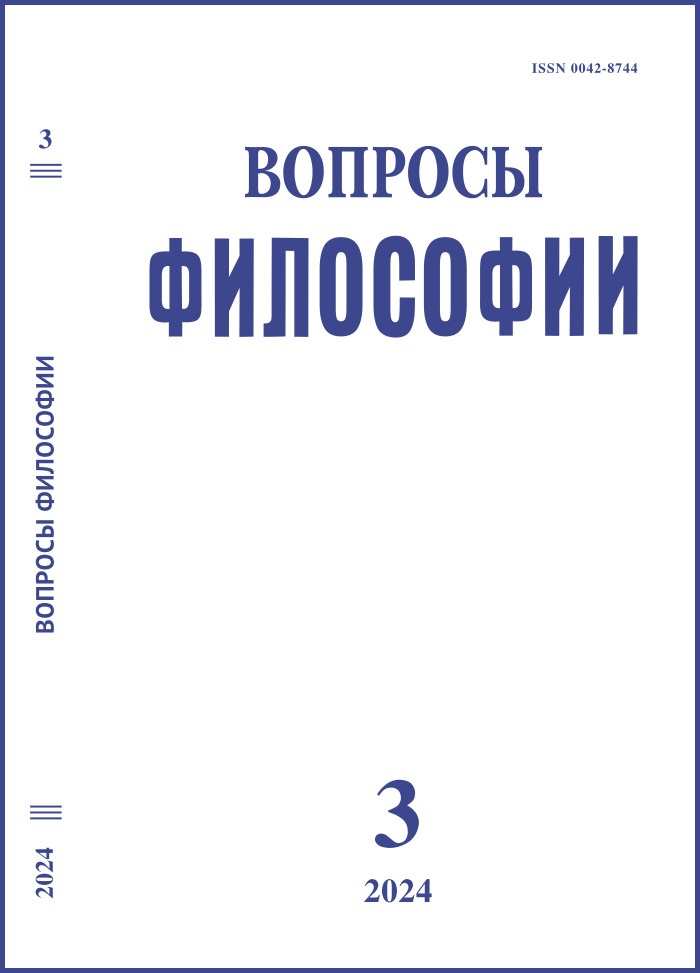Marxism and Soviet Socio-Humanitarian Thought: a View from the 21st Century (“Round Table” Materials)
DOI:
https://doi.org/10.21146/0042-8744-2024-3-127-147Keywords:
marxism, soviet marxism, dialectics, dialectical logic, activity, reproduction, methodology.Abstract
The article is a transcript of the discussion about the prospects of Marxism as a philosophical and methodological program and a direction of research in the field of social sciences and scientific methodology in general. The participants of the round table held on June 24, 2023 at the Faculty of Philosophy of Moscow State University expressed different views on the current state and prospects of the Marxist paradigm, focusing on the role of Marxism in the development of Soviet science in the second half of the 20th century and the ideas of K. Marx and the tradition associated with him that retain their relevance and methodological potential. It is happened so that A.V. Buzgalin, who opened the round table conference, passed away on October 18, 2023. However, ideas live longer than people, words are stronger than flesh, and the editors of “Voprosy filosofii” are grateful for the opportunity to help Alexander Buzgalin's thought sounding. In his speech A.V. Buzgalin noted that Marxism has moved far from the developments of the Soviet period, but these developments remain relevant and have significant application potential. A.V. Chusov noted the underestimation of
D. Lukács’ Marxist ideas, the non-classical nature of Marxist ontology, and emphasized the originality and methodological importance of a number of the key Marxist philosophy concepts, such as reproduction and activity. I.E. Frolov drew attention to the undervalued developments of Academician A.I. Anchishkin in studies of productive capital and labor productivity, relevant for understanding the economic role of intellectual activity and innovation. P.A. Orekhovsky spoke with sharp criticism of Soviet Marxism as a failed project, which departed far from the original ideas of K. Marx and crashed due to the impossibility of both practical and theoretical creation of an institution of public property. G.V. Lobastov recalled the philosophical and methodological potential of the Hegelian interpretation of Marxism in the version of E.V. Ilyenkov. Yu.V. Pushchaev emphasized the importance of dialectical logic and the underestimation of the principle of coincidence of partisanship and objective truth, which closely correlates with the idea of the impossibility of “evaluation-free”, abstract-objective knowledge. T.A. Varkhotov noted the fragmentation and emasculation of content in modern Marxism and emphasized the methodological significance of the activity approach in solving the problem of epistemological dualism of the body-consciousness. K.H. Momdzhyan pointed out the heuristic potential of Marx’s philosophical and sociological theory and the categorical system of thinking as an important methodological achievement of Soviet historical materialism. B.I. Pruzhinin, summing up the discussion, emphasized the obvious historical evolution of Marxism and the viability of Marxist methodology, which continues to play an important constructive role in the development of both philosophical concepts – for example, in the constructive realism of V.A. Lektorsky, and in scientific research, for example, in psychology, where the activity approach is used and retains significant methodological potential.

